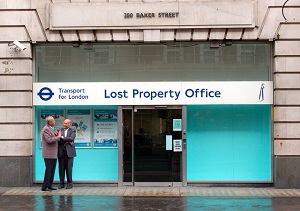You have no items in your cart. Want to get some nice things?
Go shopping
Big Butts
Women in the sweltering inland suburbs have big butts; women on the coast have small, round, tight butts. Kathy is coastal by birth and now happens to live in the hot inland sprawl of Palm Springs, California. “You are so lucky,” she used to tell her children. “So many of your friends’ moms just let themselves go, and now they have these huge BUTTS!” Her children would just stare at her blankly.
In truth, Kathy’s butt fluctuates between medium and medium-wide, depending on how her latest diet is going. Her new husband, Hank, appreciated her butt, but he was more of a boob man. A couple of months into their marriage Kathy had her 34Bs upped to 36D with the help of some saline jigglers. Kathy loves them. After she recovered from the surgery, she drove to T.J. Maxx and bought lots of shimmery bras in an array of pastels with scalloped bust lines and bows and lace. It’s all about the details.
Suckers
College is for losers, and Kathy is a winner. She didn’t need college; she was smarter than college. College is for the weak, who need to be told what to do, and Kathy didn’t need to be told anything. What Kathy is, really, is an entrepreneur. Maybe not on paper, but deep down she knows she was cut from that cloth. Kathy’s ex-husband went to college and taught for the duration of their marriage. Professor Ed, they called him. He might have snowed his students and fellow faculty, but Kathy knows the truth: teaching is easy. He only actually taught eighteen hours a week. Kathy could do that in her sleep.
Mary Kay
During her marriage to Ed, Kathy lived in Bristow, Oklahoma. In Bristow it was popular for stay-at-home moms to have projects on the side for extra cash: Tupperware, hand-painted T-shirts, hair clips, jewelry, any knickknack they could hawk at bake sales or Bible study class. Kathy thought her calling was Mary Kay. As she saw it, Mary Kay was for the entrepreneur who wasn’t afraid of getting out there and hustling. Ed thought it was a bad idea. He didn’t want to fork over what little money they had for lipsticks and lotions that would end up collecting dust in the garage. “What if it doesn’t sell?” he’d ask. “Then what?”
This really pissed off Kathy. Ed was such a downer. He had no vision. The one thing Kathy had learned from all her books was that entrepreneurs can’t be scared of risk. Risk is what separates the Queen bee from the lowly worker bees. Ed was going to be a worker bee for life, because that was his mentality. But it wasn’t Kathy’s.
Despite Ed’s protests, Kathy called her parents and asked for a loan. They too were unenthusiastic, but then again they’d never been supportive, so she wasn’t surprised when they declined. She was actually glad; it would make her triumph that much sweeter.
There was only one other Mary Kay seller in Bristow, a large, sweaty middle-aged lady with a bad perm and yellow teeth. She was no threat. In fact, Kathy couldn’t wait to steal her customers and then wave at her as she passed her on Main Street. So Kathy scraped together money from her grocery-store allowance, took forgotten dollar bills out of Ed’s pants, and returned birthday presents the kids didn’t need. After a couple of months she had enough to host her very first Mary Kay party and be the entrepreneur she knew she was.
Consumed
Kathy was always busy. The house was never clean enough, her nails were chipped, there was bread to bake, and a much better deal on lunch meat over in another town. There were phone calls to be made, and a talk to be had, and her hair needed attention—not to mention her skin, which desperately needed a good twenty minutes under the tanning lamp. Plus all that driving, driving, driving: to a new garage sale, or to an antique store that had opened up only thirty miles away. Information was collected and dispersed at a frantic rate, conversations were twisted and conflated, the truth became murky.
Entrepreneur
Kathy cleared her bathroom closet of its bath towels and bed linens, then wiped the three shelves down. Once they were dry, she lined them with floral contact paper: pink and baby-blue rosebuds on a white background. Kathy sorted her products, placing colors on top and cleansers, toners, and lotions on the bottom. After she was done, she stepped back and looked, just looked, noticed how the pink Mary Kay boxes radiated against the soft floral paper. She was a winner. Kathy tore a piece of paper from one of the kids’ spare notebooks and wrote down the name of every woman in Bristow, Seminole, and Shawnee that she knew. Then she made a list of every elegant drink and appetizer she could think of: little sausages on toothpicks with a swirl of hot mustard, a cheese ball rolled in sliced almonds, mini fruit skewers, and her specialty, cheese buns: hot-dog buns slathered with a mixture of shredded cheddar cheese and mayonnaise, baked in the oven until a bubbly, golden brown. For drinks, she would make her mother’s fizzy fruit punch and serve it from her crystal punch bowl. Classy. Kathy knew she was the grace Bristow was missing, and her Mary Kay party would reinforce this. Who would you want to buy your makeup from—an obese, sweaty loudmouth, or the new girl from California who was as elegant as she was beautiful?
Big-Girl Pants
Kathy is not a victim. She hates women who whine about being victims, with their victim mentality and sad victim eyes. No! She is definitely not one of them. They are l-o-s-e-r-s, sad little losers at that, and Kathy is a winner. So what if Ed left her, abandoned her with two kids in a crap town. Kathy pulled herself up by her bootstraps and turned a Mazda into a Mercedes. She’ll tell that to anyone who asks.
Mary Kay, Part 2
Kathy put together a tea party and invited all the ladies she could think of. They ate her finger foods and drank her punch and sampled her cosmetics, smiling and telling her how great the products were. Then they left, buying very little, if anything. Kathy let a couple of weeks pass, and then she started calling around to see who was in need of a Mary Kay pick-me-up. She sold a few bottles of hand cream and a couple of compacts of powder, but that was it. The bulk of her products stood, lonely in their pale pink boxes, waiting for the date that never arrived. The boxes started to lose their luster. Dust settled on them, and ants navigated their edges on their way to half a Hershey bar that Kathy had hidden behind them and forgotten. A Christmas passed, and then another and another. One day Kathy pulled the boxes off the shelf and bundled them in red velveteen ribbon. It was Christmas again. She’d spoil her family with her wares.
Mother
Kathy’s mother was a short lady with orders as tall as her blond beehive. Her childhood had been rough, so she made sure her daughters wouldn’t suffer the hell she’d been through. This would be her legacy, though it didn’t garner her any mothering awards. She was cold and critical, distant and demanding. Her two eldest went off to college while Kathy stayed home and attended secretarial school, only to drop out after a few months. Next Kathy enrolled in junior college, where she trudged along, too scared to be on her own but hating the daily scrutiny of her mother. Then she met and married Ed.
Hotels
Kathy is a five-star who keeps dating two- and three-stars. Where are all the five-star men?
Youth
At school some girls called Kathy a bully, but she was really more of a mean gossip. When given the stage, Kathy could rip into her subject with such humorous savagery that her audience couldn’t help but let out a snicker or snort. The surge of power, of triumph, that Kathy felt at that moment was intoxicating. It felt good to be cruel, and she was good at it.
Kathy was also good at being a Christian. She attended church on Wednesdays and Sundays and volunteered as an usher and snack helper regularly. Her Sunday-school teachers could always rely on Kathy to be engaged in biblical stories, to sing the hymns loudly, and to deliver testimonies when need be. Kathy’s sisters may have been able to outsing and outplay her on the piano, make better grades and have more friends, but Kathy was a better Christian, and in the end, that was all that mattered.
Winners versus Losers
From Kathy’s point of view, there are only winners and losers. Ed is a loser. Her son Will killed himself, so he’s a loser. Her mother Martha rose from poverty and abuse to create a life of wealth: winner. In fact, all wealthy people are winners, which makes poor people losers. Poor people are lazy—they can’t, as Kathy likes to say, pull themselves up by their bootstraps and get on with it. Kathy’s sisters are all winners. Rush Limbaugh is a winner. Dr. Laura Schlesinger was a winner until she humiliated Kathy on a phone call, so now she’s a loser. George Bush is a winner. Barack Obama is a loser and isn’t even an American, so he shouldn’t have been president in the first place, but don’t get Kathy going on that one. Veterans are winners until they complain, and then they are losers. Her daughter Emma, hmm … that’s a tough one. Kathy is still undecided. Emma’s fate can swing rapidly between loser and almost winner, being that she’s a successful artist living in Manhattan, but this classification is wholly dependent on Kathy’s mood. Feminists are losers. Liberals are losers. Donald Trump is a winner. Margaret Thatcher is a winner. And Kathy, of course, is a winner, though she sometimes feels like a loser. Not that she’d ever admit that.

About Michelle Gutman
Michelle Gutman’s short fiction has appeared in SoMa Literary Review, Skive Magazine and elsewhere. She lives in Portland, Oregon.




